-

Making a Career Choice: Follow in Your Own Footsteps
In a guest column, APS Fellow Barbara Wanchisen shares observations and ideas on broadening career opportunities for psychological scientists.
-
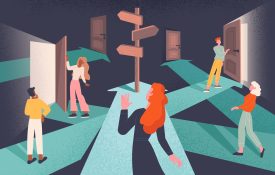
Student Notebook: Finding Your Path in Psychological Science
Feeling unsure or overwhelmed as an early-career psychology student? Second-year graduate student Mariel Barnett shares advice to quell uncertainties.
-
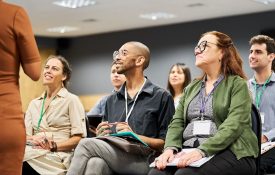
Matching Psychology Training to Job Market Realities
APS President Wendy Wood discusses how graduate programs can change the habit of focusing on academic-career preparation.
-
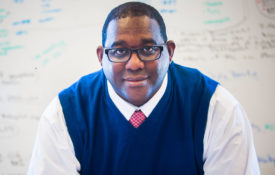
Careers Up Close: Rohan Palmer on Genetics and Substance Use
This Emory University psychological scientist is engaged in cutting-edge research on the genetic and environmental factors that leave some people vulnerable to substance dependency.
-

Exploring Tech Jobs as Psychological Scientists
In this guest column, APS William James Fellow recipient James W. Pennebaker, a renowned academic and software entrepreneur, shares useful advice on pursuing careers in the technology sector.
-
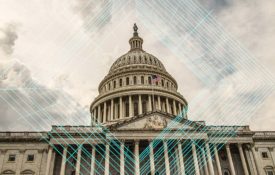
Science in Service: Shaping Federal Support of Scientific Research
Social psychologist Elizabeth Necka shares her experiences as a program officer at the National Institute on Aging.
-
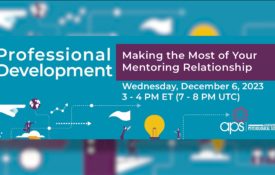
Professional Development Workshop: The Keys to a Successful Mentoring Relationship
What’s the best way to establish a productive mentoring bond? An APS Professional Development Webinar offers some answers.
-

Finding Opportunities in Research Administration
In a conversation with APS President Wendy Wood, clinical scientist Christine Hunter shares how she’s applied skills learned in graduate school to her role as a government research director.
-
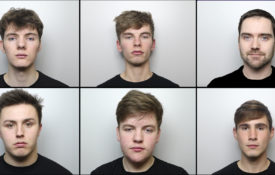
Careers Up Close: Ryan Fitzgerald Eyes Eyewitness Identification
Associate professor and researcher Ryan Fitzgerald discusses his research into eyewitness identification, mentoring students, and lessons he’s learned along the way.
-

Biennial International Seminar on the Teaching of Psychological Science to Commence July 2024
The 3rd Biennial International Seminar on the Teaching of Psychological Science (BISTOPS) will take place July 1 – 5, 2024 in Paris at Maison Suger, at the Fondation Maison des Sciences de l’Homme—Maison Suger’s residential and working facility.
-
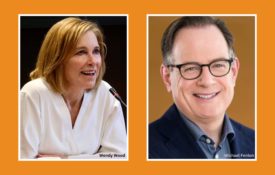
The Limitless Applications of Psychological Science
“I think there’s never been greater interest in and relevance and importance of translating rigorous research and academic scholarship for practitioners,” said Michael Fenlon of PricewaterhouseCoopers in this exclusive interview with APS President Wendy Wood.
-
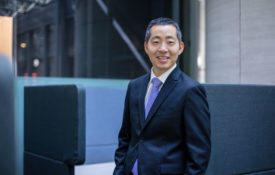
Careers Up Close: Kimin Eom on Keeping the Faith in Sustainability Research
Assistant professor at Singapore Management University Kimin Eom discusses his research into prosociality, maintaining morale, and helping others build on their successes.
-

Back Page: Bringing Climate Change Home
Norman D Henderson Professor of Psychology and Environmental Studies at Oberlin College Cindy Frantz discusses her research into humans’ relationship with the natural world, promoting sustainability, and developing strategies that can help generate support to addressing climate change.
-

Wendy Wood: It’s Time We Trained Students for Diverse Careers in Psychological Science
Podcast: Only about half of psychology PhDs are hired in academia, but psychology graduate training in the United States has largely retained the classic graduate training model of a direct path to an academic job. It’s time to change that, says Wendy Wood.
-
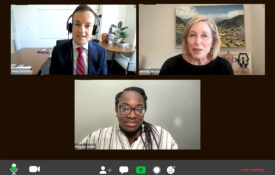
Career Crossroads? How to Map Your Journey Beyond Academia
A wide range of companies, organizations, and government agencies need psychological scientists. Tips from insiders on how to navigate the journey.
-
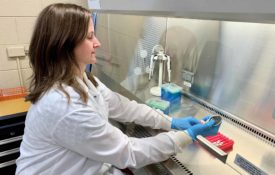
Careers Up Close: Katie Ehrlich on Studying Intergenerational Health Disparities, Finding Your Footing, and Helping Others Succeed
An associate professor at the University of Georgia, Katie Ehrlich researches how social experiences as a child can shape mental and physical health across the lifespan.
-

It’s Time We Trained Students for Diverse Careers in Psychological Science
The variety of positions held by psychologists is not a new development, writes APS President Wendy Wood in her debut column. So why has psychology graduate training largely retained the classic model of a direct path to an academic job?
-

Careers Up Close: Joel Anderson on Gender and Sexual Prejudices, the Freedoms of Academic Research, and the Importance of Collaboration
Joel Anderson, a senior research fellow at both Australian Catholic University and La Trobe University, researches group processes, with a specific interest on prejudice, stigma, and stereotypes.
-

Back Page: Singular Sensation
Clinical psychologist Dominika Ochnik discusses her research into singlehood and well-being, mental health risks among young people, and her plans to study associations between urbanization and mental health.
-

Lived Experiences Can Be a Strength. So Why the Bias Against “Me-Search”?
Podcast: Questions often emerge when researchers tend to engage in research on topics that are personally relevant for them. How is this type of self-relevant researchperceived? Researcher Andrew Devendorf discusses.
-

Encouraging Innovation in Entrepreneurship
Drawing from his newest book, Stephen Reed explores the cognitive and social skills required for innovation, the transition from theory to practice, and more.
-

The March/April Observer: Entrepreneurship in Psychological Science
Shifting economic winds portend a Darwinian environment for start-ups. Psychological science is revealing what will help the fittest ventures survive.
-
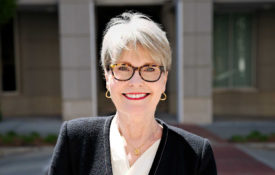
Back Page: The Executive Whisperer
Constance Dierickx discusses her work as an advisor to boards and senior executives in high-stakes leadership situations and her experiences helping psychologists learn how to be consultants.
-

The Science of Starting Up
A burgeoning assortment of psychological scientists is studying the factors that distinguish successful entrepreneurs from those that falter. Their work is particularly salient amid today’s challenging economic climate.
-
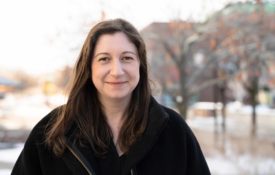
Careers Up Close: Elizabeth Tenney on Power of Voice, Tenuous Funding, and Applying Psychology in Business School
Elizabeth Tenney, an associate professor of management at The University of Utah, discusses her research into overconfidence and biases that influence our social interactions and decisions.
-
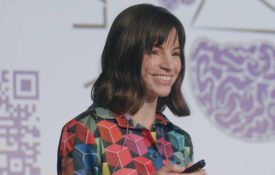
Careers Up Close: Moira R. Dillon on Infants and Children, Humanlike AI, and Commonsense Psychology
Moira Dillon, an assistant professor at New York University, discusses her research into how infants’ intelligence can contribute to the future of developing humanlike artificial intelligence.
-

APS Expands Career Resources, Professional Development in 2023
A new series of educational workshops and trainings in 2023 is designed to help psychological scientists further their careers inside and outside of academia, while fostering a more transparent and valid science on the global stage.
-
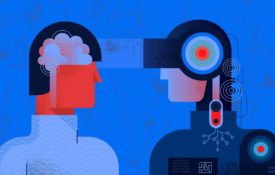
Back Page: Dumb (but Useful) AI, Smart Teams, and the Promise of Predictive Analytics
Steven W. J. Kozlowski discusses his research at the Advanced Research on Complex Adaptive Systems project and how computational modeling can help explain what we observe in the real world.
-

Science in Service: Leveraging Psychological Science to Put the “Public” in Public Health
Psychological scientist Diane M. Hall explains how her training informs her work at the U.S. Centers for Disease Control and Prevention and public health more broadly.
-

Back Page: Creativity Research and the Power of Problem Identification
Jing Zhou discusses her research in organizational behavior and the factors that facilitate or inhibit creativity and innovation.
-
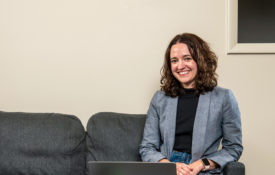
Careers Up Close: Amy Belfi on Music Perception and Cognition
Amy Belfi, an assistant professor at Missouri S&T, discusses her research into the impact that audio and music have on the brain—and looking forward to learning more, getting tenure, and playing the upcoming Nintendo Zelda game.
-
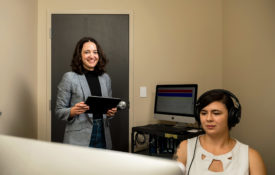
What Music Does to Us
Amy Belfi from the Missouri University of Science and Technology joined APS’s Ludmila Nunes to speak about her career as a neuroscientist studying music perception and cognition as well as how poetry and other forms of art can impact the brain and behavior.
-
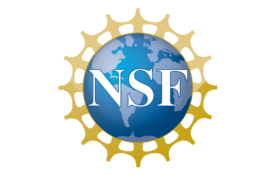
Facets of Funding: National Science Foundation Graduate Research Fellowship Program
Learn about the benefits, eligibility requirements, and details of applying to the NSF Graduate Research Fellowship Program. The 2022 deadline for psychology students is October 18.
-
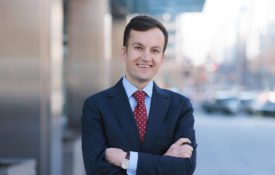
Careers Up Close: Andy DeSoto on Optimism, Self-Awareness, and the Gratifying Work of Science Advocacy
Cognitive psychologist Andy DeSoto was a key member of the APS staff for 7 years and leaves a legacy that includes a highly impactful government relations and policy program.
-

Back Page: Positive Science, Promising Outcomes
Jesus Alfonso (Jess) D. Datu discusses his research on positive psychology and positive education and how his findings can be used to inform educational policy.
-

Teaching: Successive Relearning / Thriving After Psychopathology
Lesson plans about successive relearning and finding happiness after being diagnosed with a mental disorder.
-

Communicating Psychological Science: Why You Should Write an Op-Ed—and How to Start
Widely published researchers Lara B. Aknin and Elizabeth W. Dunn provide their insights and advice regarding writing and submitting op-eds to the media.
-

Methods: How to Do Data Visualization Using R—Even If You Don’t Use R
Read about the advantages of using the programming language R in data processing and statistical analysis.
-

Back Page: Structural Stigma and the Health of Marginalized Communities
Katie Wang discusses methods to address the damaging effects of social oppression and structural stigma on marginalized communities.
-

Teaching: Adolescent Self-Control / Loyalty Benefits and Backfires
Lesson plans about self-control in adolescents and how loyalty can lead us to act ethically or unethically.
-

Science in Service: Applying Psychological Science in the U.S. Air Force
William Aue applies psychological science to his research at the Air Force Research Laboratory at Write-Patterson Air Force Base.
-

Surviving Imposter Phenomenon: One Psychological Scientist’s Story
How powerful are those self-defeating voices? Overcoming them took decades for this psychological scientist.
-

Disinformation: Misinformation’s Evil Twin
Through a variety of efforts—including the APS COVID-19 global initiative and a new white paper for policymakers, the scientific community, the media, and the public—APS and its members are researching and combating misinformation.
-

Methods: Helping Nonscientists Differentiate Preprints From Peer-Reviewed Research
Adding a brief message to preprints disclosing that these articles have not been peer-reviewed can alert readers who are unfamiliar with scientific publishing to the differences between scientific findings that have and have not been checked for quality.
-

Teaching: Babies and Others’ Emotions / Narcissism Hierarchy
Lesson plans about how babies use adults’ emotions to reason and about the narcissism hierarchy.
-
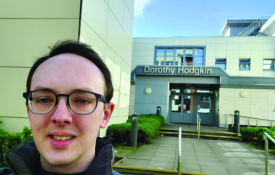
Careers Up Close: Chris Street on Lie Detection, Truth Biases, and Developing an Adaptive Lie Detector Account
Chris Street, a senior lecturer in cognitive psychology at Keele University, UK, researches lie detection and truth biases and is working to develop the first computational model of lie/truth judgments.
-

Student Notebook: Starting the Nonacademic Job Search After Graduate School
Menahal Latif shares the steps to begin the job search for students pursuing careers outside of academia.
-

Back Page: Reading and Believing
David Rapp discusses reading comprehension and his research on the factors influencing individuals’ vulnerability to misinformation.
-

Science in Service: Providing Behavioral Advice During a Pandemic
Michael Bang Petersen offers three principles for advising public policymakers based on his experience serving the Danish government.
-

Inside Grants: National Science Foundation EAGER Grant
Emily Balcetis shares her experiences responding to the 2020 “Strengthening American Infrastructure” program initiative.
-

Behavioral Change and Science Communication: Same Planet, Worlds Apart
Research credentials won’t resonate with science skeptics. Is it time for psychological science to incorporate tactics from public relations?
-

Communicating Psychological Science: Being Ready When the News Comes Calling
The media need credible subject matter experts who can provide context, help personalize complex findings, and offer contrary viewpoints on controversial issues.
-

Methods: Measuring Change With Power in Intensive Longitudinal Research
This tutorial walks through the process of selecting sample sizes in intensive longitudinal research.
-

Teaching: Social Media and Moods / Retrieval-Induced Learning
Lesson plans about the effects social media has on our mood and about retrieval-induced forgetting.
-
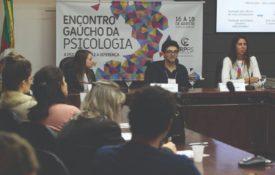
Careers Up Close: Angelo Brandelli Costa on Prejudice, Sexuality, and the Health of the LGBTQ+ Population
Angelo Brandelli, associate professor of social psychology at the Pontifical Catholic University of Rio Grande do Sul, researches the social and health of the LGBTQ+ population.
-

Back Page: The Devastating Toll of Diet Culture
“Society has not come to terms yet with the fact that eating disorders are everywhere, they impact everyone, and the problem is growing,” says Cheri Levinson.
-
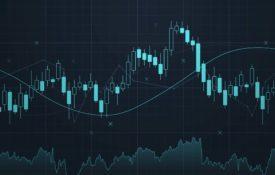
Visualize Data to Communicate Science With Students, the Public, and Policymakers
The latest issue of Psychological Science in the Public Interest explores the good and the bad of data visualizations and how public understanding of science can improve if researchers adopt better visualization techniques.
-

Internships (Paid Ones!), Passions, and Other Keys to a Successful Career Leap
How does a psychologist with little or no nonacademic experience position themselves to compete in a very different job market? Learn from these trailblazers.
-

Presenting Science: Best Practices for Making Data “Pop”
When creating data visualizations, these guiding principles can promote accuracy and engagement.
-

Communicating Psychological Science to a Sometimes-Skeptical Public
Overcoming anti-science beliefs will require proactive public-awareness and issue-management campaigns.
-

Teaching: Stereotypes About Age / Cultural Norms and COVID-19 Mortality
Lesson plans about looking past stereotypes to communicate to older people and the link between cultural tightness and COVID-19 mortality.
-

Back Page: It’s a Conspiracy!
Karen Douglas, a professor of social psychology at the University of Kent, studies the psychology of conspiracy theories.
-
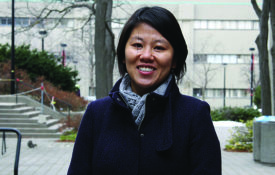
Careers Up Close: Jolynn Pek on Quantifying Uncertainty
Pek analyzes sources of uncertainty in statistical results and develops new approaches to practicing replicable psychological science.
-
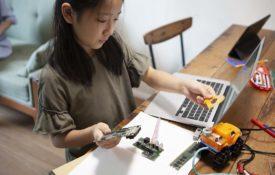
Inside Grants: Japan Society for the Promotion of Science
Keiko Ishii, an associate professor in the Graduate School of Informatics at Nagoya University, received her first JSPS research grant in 2000.
-

Fully Credited: Making Publishing More Equitable
A new model of “contributorship” addresses the marginalization of early-career researchers in scientific publications.
-

Science in Service: Making Noise That Can’t Be Missed
Tom Hilton’s decades of government service as an industrial/organizational psychologist has shown me time and again that it is possible for research to affect public and organizational policies and practices
-

A Closer Look at NIH’s High-Risk, High-Reward Research Program
These NIH programs are designed to function like a “venture capital space” for transformative research.
-

Notes From a Fellow: Combining Policy Work and Teaching
-

Inside Grants: National Institutes of Health High-Risk, High-Reward Research Program
Clinical psychologist Jessica Schleider shares insights on her research grant and more.
-
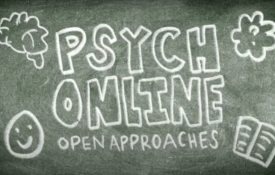
APS Teaching Fund Showcase: Microgrants for Online Learning
-

Communicating Psychological Science: Becoming a Science Celebrity
Scientists may be heard above the din of misinformation by going to where most people get their information—social media.
-
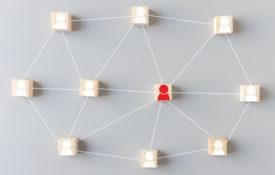
Assessing Ego-Centered Social Networks in formr: A Tutorial
formr allows researchers to create everything from simple surveys to longitudinal, experience-sampling studies.
-

Teaching: Falling for Scams / When Fiction Feels Real
Lesson plans on why we fall prey to scams and experience the placebo effect through films by David G. Myers, Cindi May, and Michael Scullin.
-
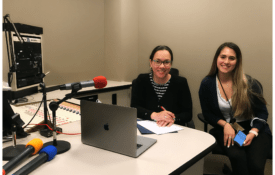
Careers Up Close: Yakeel Quiroz on Cross-Cultural Alzheimer’s Research
This professor of psychiatry and neurology leads a longitudinal biomarker study of early-onset Alzheimer’s disease.
-

Back Page: Staving Off Stereotype Threat
Keith Maddox aims to further understanding of how stereotypic knowledge impacts behavior.
-
Center for Advanced Study in the behavioral Sciences 2022-23 Fellowships
The Center for Advanced Study in the Behavioral Sciences (CASBS) at Stanford University is now accepting applications for residential fellowships for the 2021–22 academic year. CASBS has hosted generations of scholars and researchers who are in residence for the academic year and welcomes applications from individuals at any career stage. It is particularly eager to receive applications from accomplished scholars and thinkers who engage with significant societal challenges, and the research methods that support them. Application Deadline: November 5, 2021 For more information, visit the CASBS website.
-

Exploring Pipeline Programs That Will Support Your Academic Journey
Pipeline programs (also known as pathway programs) are designed to provide support and resources to aspiring, early-career, and established scholars from diverse ethnic, gender, and economic backgrounds.
-
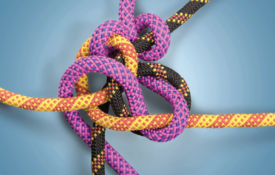
Notes From a Fellow: Three Skills to Sharpen for a Career in Applied Psychological Science
Being able to apply psych science to interdisciplinary interventions, understand field experiments, and work with administrative data is essential, writes Heather Kappes.
-
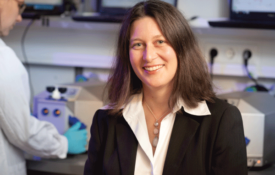
Inside Grants: European Research Council Consolidator Grant
Iris-Tatjana Kolassa, a professor of clinical and biological psychology at Ulm University, shares her insights on this prestigious grant.
-

Communicating Psychological Science: Public Speaking and Science Outreach
If the voice of science is missing from public events, that vacuum will quickly be filled by less evidence-based perspectives.
-

Teaching: Healthy Habit Formation / Speaking With Strangers
Lesson plans on forming healthy habits to prevent COVID-19, by C. Nathan DeWall, and socializing with strangers, by David G. Myers.
-
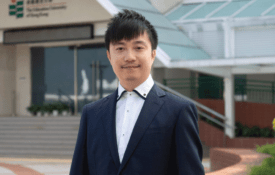
Careers Up Close: Henry Ho on Building Psychological Capital
Henry Ho, an assistant professor at The Education University of Hong Kong, researches the psychosocial and emotional factors that support well-being at work and at home.
-

Student Notebook: Back Yourself
Sally Larsen encourages students preparing for careers outside academia to reimage the skill sets they’ve gained in graduate school.
-

Pitch Perfect: Exploring Black Women’s Emotional Coping Strategies
Okie Nwakanma received first prize for her upcoming research on how Black women use emotional-approach coping to deal with gendered racism.
-

Exploring Pipeline Programs That Will Support Your Academic Journey
Pipeline programs (also known as pathway programs) are designed to provide support and resources to aspiring, early-career, and established scholars from diverse ethnic, gender, and economic backgrounds.
-

Pursuing Best Practices in STEM Education: The Peril and Promise of Active Learning
Active learning is a promising yet loosely defined STEM instructional technique.
-

50 Years of Writing Books: A Psychological Scientist Looks Back
But writing books can integrate research and theory—and can be remarkably satisfying. A psychological scientist looks back at 50 years.
-
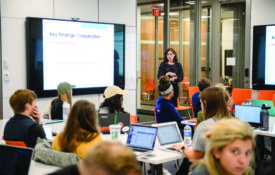
Careers Up Close: Marissa Shuffler on the Principles of Teamwork
This industrial-organizational psychologist works with teams across the fields of healthcare, space exploration, and the military.
-

Back Page: 2021 APS Entrepreneurship Poster Awards
Nikki Blacksmith received the award for her work on entrepreneurial ecosystems, while Dohyung Cha was recognized for his work on the dot-com bubble.
-
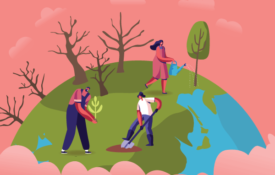
Much More Online
Featuring articles on eco-friendly behavior, virtual networking, and horse psychology.
-

Personalities Change. Why Shouldn’t Career Expectations?
Patterns of personality growth from adolescence to young adulthood strongly influence career outcomes.
-
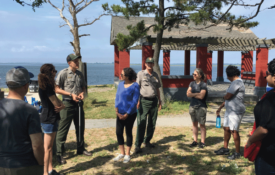
Careers Up Close: Sonya Sachdeva on the U.S. Forest Service
This social scientist uses research on morality and sociocultural influences to improve natural resource management.
-

Student Notebook: To Work or Not to Work
Meghan Davenport explores how full-time work can set up budding psychological researchers for success in graduate school.
-

Back Page: Environment and Disinhibition
Arielle Baskin-Sommers explores the cognitive-affective processes associated with disinhibition and community violence.
-
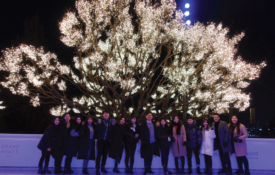
Careers Up Close: Woo-Young Ahn on Delineating Disorders
This Seoul National University professor uses computational modeling to identify the behavioral markers of addiction.
-
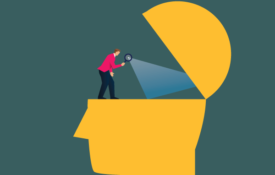
Back Page: Remember This
Nathan S. Rose uses neuroimaging and stimulation to study memory in patients with Alzheimer’s disease, Parkinson’s disease, and amnesia.
-
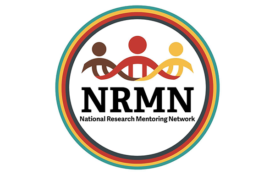
When the Perfect Mentor Is Outside Your Network
The National Research Mentoring Network, supported by the U.S. National Institutes of Health, is a free social and professional networking tool that matches and facilitates mentoring relationships using evidence-based best practices and online resources.
-

Personalities Change. Why Shouldn’t Career Expectations?
Patterns of personality growth from adolescence to young adulthood have a greater bearing on career outcomes than adolescent personality traits and crystallized ability.
-
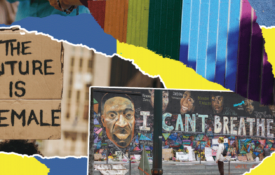
A More Inclusive Psychological Science
Psychological scientists have long studied bias, from explicit and implicit attitudes to stereotypes and structural inequality. Now they’re working to apply those findings within the field itself.
-
Looking Forward: Letter from the New APS Executive Director
As APS’s newly appointed executive director, I have been focused on new beginnings—new information, new partnerships, new ideas, and new perspectives on persistent problems. Interestingly, my thoughts have coincided with the end to what nearly everyone around the world will look back at as a remarkably long and stressful year. As we continue to work to resolve the myriad challenges that surfaced in 2020, we must also recognize that life has changed. How we do business, learn, collaborate, communicate, and interact has changed. Our organizations must also change.
-
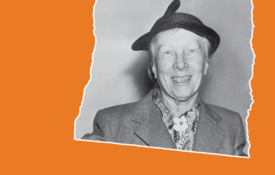
Women in Psychology: An Uneven Playing Field
Women in the field have come so far—and have some distance yet to go.
-
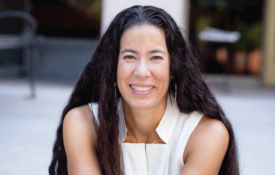
Careers Up Close: Sarah Townsend on Teaching New Theories of Difference
This University of Southern California professor uses a cultural psychological approach to discover solutions to inequality.
-
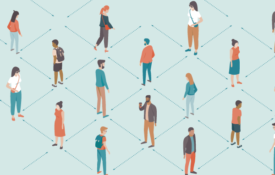
Back Page: The Front Lines of DEI
Lily Jampol, head of people science at ReadySet, helps organizations build more inclusive environments.
-
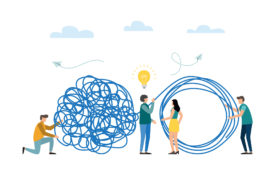
Path to My Postdoc: Creating Collaborative Connections
Researchers shared their experiences with the postdoctoral process, including applications, securing funding, and the value of publications.
-
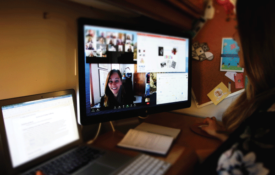
Careers Up Close: Sonja Brubacher on Best Practices for Investigative Interviewing
This Griffith University researcher works with law enforcement and child protection officials around the world to improve forensic interviews by bringing practitioners’ observations back
to the lab. -
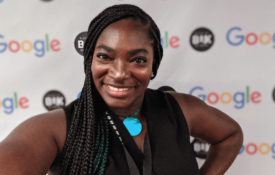
Back Page: Dr. Roboto
Melissa Smith brings a lifetime of fascination with robotics and human-computer interaction to her work as a senior user experience (UX) researcher at Stadia, Google’s gaming platform.
-

Careers Outside of Academia: How to Land and Navigate
Academia is only one option for a career as a psychological scientist. The key to finding a fulfilling career in a field such as technology, business, or a nonprofit? Identify your passions and use them
-

Women in Psychological Science: Ideas, Research, and Action
The evolution from idea, to study, to action plan in the first-ever gender parity review in psychological science.
-
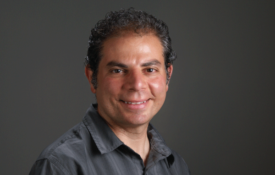
Careers Up Close: Bassam Khoury on How Mindfulness Breeds Compassion
This McGill University researcher seeks to understand how mindfulness can contribute to building a more compassionate world.
-

Back Page: Playing PAC-Man and Helping to Shape the Field
Michael Hout shapes the field of perception, action, and cognition at the U.S. National Science Foundation’s Division of Behavioral and Cognitive Sciences.
-

Path to My Postdoc: Creating Collaborative Connections
Researchers shared their experiences with the postdoctoral process, including applications, securing funding, and the value of publications.
-
NASEM Seeking Environmental Health Committee Experts
The National Academies of Sciences, Engineering, and Medicine’s Standing Committee on the Use of Emerging Science for Environmental Health Decisions seeks experts to plan a workshop exploring the influence of environmental exposures (e.g., pollutants) on mental and behavioral health outcomes. The workshop, planned for February, 2021, will focus on efforts to better integrate mental and behavioral health into multidisciplinary considerations of environmental health; new tools and technologies to assess mental and behavioral health outcomes; and ways in which mental and behavioral health impacts could be incorporated into environmental risk assessm…
-
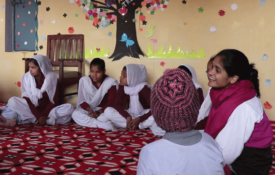
Careers Up Close: Ananya Tiwari on How Education Can Deter Early Marriage in India
This PhD student studying educational psychology cofounded and runs an international nonprofit that works to enhance the educational outcomes of adolescent girls in India who may be prone to early marriage.
-

Student Notebook: Opportunities for Pursuing a Passion in Psychology
Reading, volunteering, and getting involved with nonprofits in your community are amazing opportunities to grow as a future psychological scientist.
-

Back Page: Driven From Distractions
Lotte van Dillen, of Leiden University, studies the role of affect in consumption, financial decision-making, and judgment, especially under trying circumstances.
-

Adding Value and Solving Problems: Virtual Networking for Scientists
Techniques and strategies for making connections remotely, identifying pain points, and building collaborations with your future colleagues.
-

Careers Outside of Academia: How to Land and Navigate
Psychological scientists who have chosen careers outside of academia share helpful experiences and tips.
-

Careers Up Close: The Drive to CARE About Eating Disorders
Kelsie Forbush, recognized as an APS Rising Star in 2015, discusses landing her first job post-PhD, launching a lab at the University of Kansas, and the importance of collaborating with clinicians.
-

Back Page: Building a Better Statistics Class
Ji Son, a professor of cognitive psychology at California State University, Los Angeles, uncovers data-based methods for helping students understand statistics more deeply.
-

Last Chance: Apply for NSF Faculty Early Development (CAREER) Program
The National Science Foundation (NSF) has extended the deadline to apply for its Faculty Early Development (CAREER) program from July 27 to August 11, 2020.
-
Virtual Event: Careers in Data Science
IE University will host a virtual event, "Why Doctoral Students Make Great Data Scientists," at 6:30 pm GMT (12:30 pm EST) on Wednesday, July 15th, 2020. The talk, hosted by Inna Saboshchuk, a data scientist with a background in basic and applied social psychology, will provide an overview of some of the career options that exist for psychological scientists outside of academia, as well as an opportunity for students to ask any questions they may have on the topic. Register for this free event here.
-

Adding Value and Solving Problems: Virtual Networking for Scientists
Techniques and strategies for making connections remotely, identifying pain points, and building collaborations with your future colleagues.
-

The Dark Side of Academia: Common Negative Experiences No One Talks About
Academic life is not just about discovery and excitement. Seven scholars share some common negative experiences in academia that no one talks about.
-
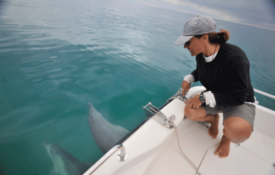
Back Page: Decades of Dolphins
Janet Mann, a professor of psychology and biology at Georgetown University, dives deep into the social lives of these clever marine mammals.
-

For Work-Family Balance, Give Policy a Personal Touch
Informal social support is essential for helping employees maintain work-family balance without facing professional consequences.
-
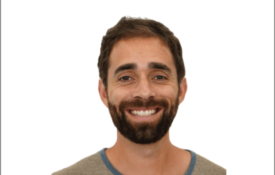
Back Page: From Antarctica to Mars
Pedro Marques Quinteiro studies how teams work in space-analogue situations to predict and improve future work in space stations.
-

For Work-Family Balance, Give Policy a Personal Touch
Informal social support is essential for helping employees maintain work-family balance without facing professional consequences.
-

NSF Report: Women, Underrepresented Minorities Gain Ground in Behavioral Science
Slowly but surely, the growing presence of women and underrepresented minorities is altering the makeup of the psychology and social-science workforce.
-
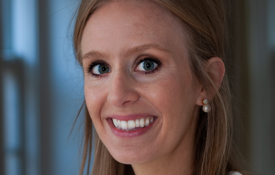
Student Notebook: Communicating Psychological Science—Why It Matters and How to Get Started
Psychological science, if communicated effectively, has a key role to play in addressing some of the most urgent problems of our time.
-
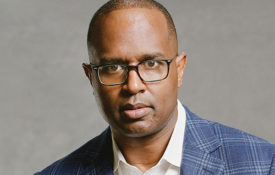
Back Page: Personality Plus Plus Plus
In his new book and his research, clinical psychologist and Oxford College of Emory University professor Ken Carter gets inside the minds of thrill-seekers, daredevils, and adrenaline junkies.
-

Much More Online
Featuring articles on the psychological science community’s response to COVID-19, as well a research on public health and epidemics.
-
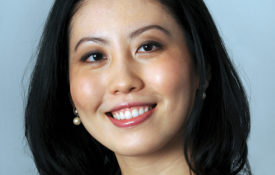
Back Page: The Talent Bias
Years of performing as a pianist sparked psychologist Chia-Jung Tsay’s curiosity about perceptions of “natural talent” and other factors that can influence how we evaluate achievements.
-

APS Spence Awards Announced
Eight psychological scientists have been selected as the recipients of the 2020 APS Janet Taylor Spence Award
-
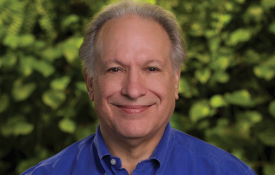
Back Page: Awake at the Wheel
APS Fellow Mark Rosekind, chief safety innovation officer at Zoox and former head of the National Highway Traffic Safety Administration, uses psychological science to make roads safer for drivers and pedestrians alike.
-

2020 APS Spence Recipients Announced
Eight psychological scientists have been selected as the recipients of the 2020 APS Janet Taylor Spence Award.
-

Take an Aisle Seat
Part of the scientific process is dealing with conflicting data and results. APS President Lisa Feldman Barrett suggests making a resolution this year to transform your adversaries into your greatest resource, scientifically speaking.
-
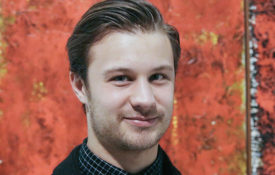
Student Notebook: Considering Life on the “Other Side”
User experience (UX) research and related careers in the tech industry represent one alternative to the traditional academic route.
-
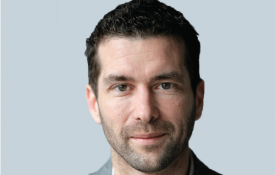
Back Page: Never Fear?
It may sound like he’s inducing amnesia, but psychology professor Tom Beckers is actually testing the possibility of targeting and muffling psychologically crippling memories.
-

Do We Really Learn From Our Mistakes?
Contrary to conventional wisdom, people may learn less from their failures than from their successes, a study shows.
-

Back Page: Nap Tracker
A pioneer in studying learning and memory during atypical development, University of Arizona professor Jamie Edgin is uncovering the effects of poor sleep on learning in children with Down syndrome.
-
Biennial International Seminar on the Teaching of Psychological Science
The 2nd Biennial International Seminar on the Teaching of Psychological Science (BISTOPS) will take place on 13 – 17 July, 2020 in Paris at Maison Suger, at the Fondation Maison des Sciences de l’Homme—Maison Suger’s residential and working facility. The seminar will accommodate about 20 participants who have experience in conducting and publishing research on teaching psychology and in successful grant-writing, as well as those who are developing ideas for such research or have a strong interest in doing so.
-

Networking May Not Pay Off for Everyone
Professionals who invest time in networking against their personal preferences may find that their work suffers as a result, a study suggests.
-
Advice for New Faculty
It’s your first faculty job. Now what do you do? A panel of three psychological scientists who have been there, done that offer some advice. What are the first things you should do as a brand new faculty member? Kim Penberthy: Get a mentor if you have not already been assigned one. This should be a faculty member at a higher rank who has risen in your system. Check and see if there is a mentoring program in your institution and join it! Jessica Schleider: I’m not sure if these are things everyone should do, but here are some things I did do and found helpful: Find out who the “go-to” administrative folks are in and beyond your department.
-

Attend “Using Evidence: Learning from Low-Cost Federal Evidence-Building Activities”
Psychological scientists who are in the Washington, DC, USA area and are interested in applying their science to improving public policy should know about an upcoming October 30, 2019 event in DC organized by the Office of Evaluation Sciences.
-

The Publication Arms Race
The advice to “publish or perish” may fuel many psychological scientists, but APS President Lisa Feldman Barrett says the field’s future depends on incentivizing research quality over quantity.
-
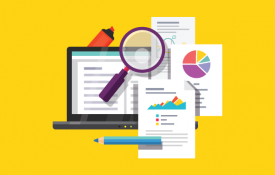
I’ve Been Sent a Manuscript to Review — Now What?
APS James McKeen Cattell Fellow Scott O. Lilienfeld, editor of Clinical Psychological Science, offers eight tips for being a good manuscript reviewer.
-
Become a Tenure-Track Scientist Within the NIH Intramural Research Program
Psychological scientists interested in a tenure-track research position within the National Institutes of Health (NIH) will want to know about a unique opportunity to earn a position via an innovative application initiative. Now in its 11th year, the NIH Earl Stadtman Investigators Program offers tenure-track positions to researchers conducting cutting-edge behavioral or biomedical science. These positions are housed with the NIH intramural research program, which is NIH’s internal research wing. “The Stadtman Tenure-Track Investigators search seeks to identify talent through a broad search that can focus on specific areas of science or enable the candidates to bring their ideas to us.
-

Dedication Buffers Employees Against Boredom, Study Suggests
The time seems to crawl. Your motivation is nil. You feel like your talents are wasting away. You’re not alone. While a recent Gallup poll shows an uptick in job satisfaction, a major part of
-
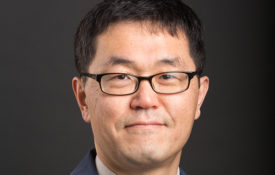
Back Page: Decoding Decision Making, One Neuron at a Time
Researcher Daeyeol Lee uses methods from economics, neuroscience, and artificial intelligence to understand the brain’s ability to make decisions.
-
Extended Deadline for EuroCogSci 2019 Paper & Poster Submission
The European Conference for Cognitive Science 2019 (EuroCogSci 2019) will be held September 2 to 4 at Ruhr-Universität Bochum in Germany. The conference will feature contributed papers, symposia, and posters covering all subfields of cognitive science, bringing together a large number of experts from Europe and overseas. The call for conference papers and posters has been extended to April 15, 2019. More information on the submission process and conference events is available on the EuroCogSci 2019 website.
-
Where Psychology Majors Work
All of us involved in undergraduate education go to great lengths to ensure our curriculum provides training in the content, methods, critical thinking, and communication skills appropriate for a major in the science of psychology. But despite that training, neither employers nor psychology students presume they have the skills important for success in the world of work. In a 2012 paper, educational psychologist Todd Haskell (Western Washington University) and colleagues pointed out how this irrational belief persists, with negative consequences for our field and our students — particularly when it comes to their career choices and the opportunities they seek.
-
Student Notebook: Diverse Opportunities for Students in Psychological Science
When the weather starts to get chilly and the leaves start to fall, students begin the application process for graduate school. Starting with writing and revising their resumes, students gather all the information that will strengthen and support their applications. Although a high GPA is widely perceived as a determining factor for graduate school entrance, there are other significant factors that can help students’ applications stand out as well. These include involvement on campus and with professional organizations, leadership positions, research experiences, mentoring experiences, and internships.
-
Back Page: Attitudes About Accents
Psychologist scientist Karolina Hansen of the University of Warsaw in Poland investigates the assumptions and biases we harbor toward foreign and native accents. How did you become interested in studying linguistic biases? It all started with a Cognitive Psychology lecture. The whole lecture was interesting, but what especially attracted my attention was the Sapir-Whorf hypothesis about linguistic relativity. I found it a fascinating and intuitively true idea that people who speak different languages will see the world differently. Straight after the lecture I borrowed a book with a collection of Whorf’s articles and essays from a library.
-
Back Page: Experiments in Different ‘Worlds’
Using virtual reality as an experimental tool, APS Fellow Alan Kingstone and psychological scientist Andrew C. Gallup are exploring how basic human behaviors differ between the real world and simulated environments. What prompted your idea to examine people’s behavioral responses in virtual environments compared to real life? Both of us are tremendously committed to conducting research that has a clear and direct relevance to everyday life. As people expect virtual reality (VR) experiences to mimic actual reality, and so to induce similar forms of thought and behaviour, introducing VR into our research programs was a natural step.
-
Back Page: A Rural Reach for STEM Education
Psychological scientist Martha Escobar of Oakland University’s Cognitive and Behavioral Lab investigates the use of evidence-based approaches to promote scientific learning in low-income rural areas. What is the aim or rationale behind your NSF-backed research project? Our overall goal is to reach populations typically underrepresented in science, technology, engineering, and mathematics (STEM) to increase their interest and persistence in scientific careers. Our participants want to explore science, but lack the access and resources to attend available educational programs.
-
Back Page: Smell Talk
APS Fellow Asifa Majid, a psycholinguistics researcher at the University of York in the United Kingdom, is uncovering cultural differences in the way people talk about odors, aromas, and scents. How did you become interested in the way we identify and talk about smells? In my research, I try to understand the relationship between language and thought. One way to do that is to examine what things are more or less easy to express in language. Is everything that you can think equally expressible in language? Or expressible at all? Or are there experiences that defy verbalization? Smell was interesting to me because there is a long-standing assumption that it is impossible to talk about odors.
-

New Research From Psychological Science
A sample of research exploring how trait anxiety relates to attention, how choosing different career paths may shape personality development, and how attentional selection contributes to risky decision making.
-
Long Live Psychology! … and Long-Lived Psychologists
Turning 76 years old in a week, and still loving what I do, I find myself inspired by two recent emails. One, from social psychologist Thomas Pettigrew, age 87, responded to my welcoming his latest work by attaching 14 of his recent publications. The second, from C. Nathan DeWall, pointed me to an interesting new article coauthored by developmental psychologist Walter Mischel, age 88 (who, sadly, died just hours before this essay was posted). That got me thinking about other long-lived people who have found their enduring calling in psychological science.
-
Getting Involved On and Off Campus
For many people, the first few years of graduate school are pretty much alike: spending hours reading journal articles, taking classes, formulating research questions, doing the research, and writing papers. Aside from the occasional required self-care (e.g., sleeping, eating, bathing), graduate school becomes all about the academics. Sure, during first-year orientation I learned about the events I could be attending, the graduate student government, and the community, but those concerns were easy to ignore while I focused intently on research.
-
Teaching Current Directions in Psychological Science
Aimed at integrating cutting-edge psychological science into the classroom, Teaching Current Directions in Psychological Science offers advice and how-to guidance about teaching a particular area of research or topic in psychological science that has been the focus of an article in the APS journal Current Directions in Psychological Science. Current Directions is a peer-reviewed bimonthly journal featuring reviews by leading experts covering all of scientific psychology and its applications and allowing readers to stay apprised of important developments across subfields beyond their areas of expertise.
-
Professional Networking as a Graduate Student
Networking means many different things to many different people, especially in graduate school. With many graduate students feeling uneasy about the post-PhD job market, the pressure to network, both socially and professionally, has reached a peak. This article will focus on networking at a professional level, defined simply as getting your name out into the academic world. The advice contained within this article may appear most relevant for students approaching graduation, but it is never too early to begin the networking process. Three methods of professional networking will be discussed: conferences, academic Twitter, and personal webpages.
-
Back Page: Collaborating With a Crowd
University of Sussex researcher Raphael Silberzahn describes how an early setback led him to develop an innovative crowd-sourced research project. This “many analysts” project reveals how research teams can draw different conclusions from the same data set as a result of the choices they make in conducting their analyses. Before transitioning to academia, you had a career as a business consultant. What led you to pursue graduate studies in behavioral science? After my undergraduate studies in international business administration I couldn’t wait to try myself out in the real business world, to participate in the action rather than merely learn about it.
-
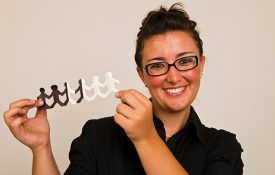
Back Page: The Chronicles of a ‘Me-Searcher’
Sarah Gaither shares how her experiences as a biracial individual have informed her psychological research on identity.
-

Do You Discover Your Passion, or Cultivate It?
People with a growth attitude may explore different interests and fight through challenges and setbacks, helping them to learn to love what they do, researchers find.
-
Back Page: Languages’ Layers
Ted Supalla, Center for Brain Plasticity and Recovery at Georgetown University Medical Center One of your research interests is exploring universals in language. What fundamental features do signed and spoken languages have in common? All languages have layers of structure, starting with a limited set of minimal contrastive formational features (sound contrasts in spoken languages; contrasts in handshapes and movements in signed languages) that combine into words, which then combine to form a potentially infinite number of sentences. This kind of grammatical productivity is found in both spoken and signed languages. What misconceptions about signed language do people often have?
-
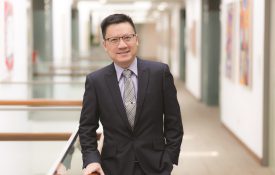
Back Page: From Police Officer to Professor
A 9-year stint on the Singapore Police Force has shaped David Chan’s sensitivity to contextual factors in his psychological research on perspective-taking.
-

On Collaborations: The Opportunities
When is a good time to collaborate on a research project instead of going it alone? APS President Suparna Rajaram offers some thoughts to help you decide.
-
Back Page: Redefining ‘Academic Superstardom’
Your work advances our understanding of mental disorders from a network perspective — how did you come to this line of research? (Did you start with an interest in clinical issues? Or did the interest begin with statistical modeling?) I started with an interest in clinical issues, forensic psychology in particular. During my Research Master I did my internship in a forensic psychiatric hospital, comparing low versus high psychopathic patients on their performance in the Iowa Gambling Task, a measure of how people process risk and emotion.
-

Medical Professionals Benefit from Self-Directed ‘Job Crafting’
Employees can shape their environments to improve their experience at work and their performance.
-

NSF Releases 2018 Science & Engineering Indicators Report
The US National Science Foundation (NSF) has released its most recent Science and Engineering Indicators Report, one of two congressionally mandated biennial reports, on the state of science and engineering investments and the workforce in the US and abroad.
-
APS Student Caucus: Serving Student Members for 3 Decades
There is much to celebrate about the past 30 years of APS, an organization founded to advance the science of psychology. And that includes a key part of the APS membership — students. From its inception in 1988, APS has boasted a large student base. Of its 30,000 members, more than 13,000 are students. Like APS itself, the APS Student Caucus (APSSC) came from humble beginnings but has grown to serve the needs of students through funding, programming, and career-development opportunities. History of the APSSC When APS was founded in 1988, membership grew quickly; after 6 months, more than one third of members were students.
-
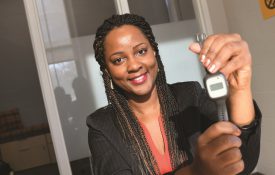
Back Page: Playing to Chronotype
Psychological scientist Royette Tavernier is staying closely tuned to her natural sleep-wake preferences to build a career investigating links between sleep and psychological and physical outcomes.
-
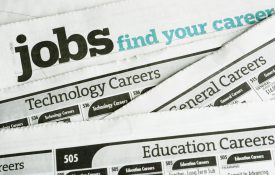
Linking Personality with Organizations, Occupations, and Income
Two recent studies highlight how personality and occupations intertwine.
-

Workers Pursuing a ‘Calling’ Face a Double-Edged Sword
While those with a calling may be more engaged in professional development, they show less flexibility and struggle to find a job that meets their ideals.
-
Back Page: A Conversation with Ralph Hertwig
Behavioral scientists have made great strides convincing policymakers to embrace the concept of nudges — interventions designed to steer people’s behavior in a preferable direction while preserving their freedom of choice. But APS Fellow Ralph Hertwig, Max Planck Institute for Human Development, Berlin, is proposing a second kind of intervention that he calls “boosts.” In a new article in Perspectives on Psychological Science, Hertwig and philosophy professor Till Grune-Yanoff (Royal Institute of Technology in Stockholm) explain the differences between the two types of policy strategies. APS asked Hertwig about the “boost” concept.
-
An Unwavering Commitment to Science
Meet Lynn Nadel, the Fred Kavli Keynote Speaker at the APS 2018 Convention APS Fellow Lynn Nadel’s scientific exploration of the hippocampus has led to groundbreaking developments in understanding how space and memory are represented in the brain. He coauthored the seminal book The Hippocampus as a Cognitive Map with John O’Keefe. Together, they received the 2006 Grawemeyer Award to honor their outstanding ideas in psychology that have had broad impact. I am delighted that Lynn Nadel will deliver the Fred Kavli Keynote Address on May 24, 2018, at the 30th APS Annual Convention in San Francisco.
-
Student Events Inspire, Impress at the 2017 Convention
APS Student Caucus (APSSC) events at the 2017 APS Annual Convention in Boston offered students a wide array of topics, including how to apply to and survive graduate school; how to navigate the job market for both academic and nontraditional jobs; and how to get your manuscripts published in peer-reviewed journals. Students also had the exciting opportunity to meet and talk with some of the leaders in the field of psychological science in an intimate setting during the “Champions of Psychological Science” event. The student programming began on Friday with a forum on “How to Get Published” chaired by APSSC Student Notebook Editor Elise Goubet of the University of Kansas.
-
Natural Selection: The Mentoring Edition
In today’s society they may be hidden, but good shepherds do exist. They nurture. They guide. They use their foresight to keep their flock safe and ensure its survival. As graduate students, we often find ourselves members of such a flock, seeking guidance, knowledge, and survival skills from those who act as shepherds — our mentors. A good mentor can ensure successful completion of your research project. Furthermore, healthy mentor–mentee dynamics facilitate a prosperous graduate experience. This article aims to define several attributes that characterize a good mentor and to encourage you to progress from flock member to shepherd status by becoming a mentor.
-

2017 APS Mentor Awards
Recipients of the APS Mentor Award for 2017 include David M. Buss, University of Texas at Austin; Randall W. Engle, Georgia Institute of Technology; Paul L. Harris, Harvard University; and Phoebe C. Ellsworth, University of Michigan.
-
Pre-Doctoral Summer Internship at the NIH Office of Behavioral and Social Sciences Research
The Society for Research in Child Development (SRCD) is sponsoring a pre-doctoral internship this summer at the NIH Office of Behavioral and Social Sciences Research. Candidates must have completed two years of coursework towards a doctorate focusing on human development; must be in good standing academically, and have a strong interest in the research linking behavioral and social factors with health outcomes for children and adolescents. They must be SRCD members and US citizens. The deadline to apply is May 15, 2017. For more information, please visit the SRCD website.
-
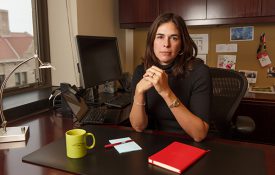
Preparing Students for Diverse Careers in Our Science
Guest Columnist and APS Fellow Sian L. Beilock discusses an initiative to teach PhD students about the value that their skills can have beyond academia.
-
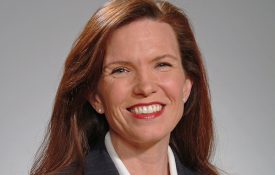
From Protecting POTUS to Safeguarding Schools
After spending a decade helping the US Secret Service identify genuine dangers to the President’s safety, Marisa Randazzo is applying her science to guiding schools on threat assessment.
-
Professors’ Influence on Display in APS Membership Initiative
Back when APS was established, our membership grew quickly, largely through word of mouth. Many of our current leaders today tell us that they joined as students because they were strongly encouraged by their professors and research mentors to be part of this important new group dedicated to the science of psychology. Invoking that same spirit on the eve of our 30th= year, we recently asked our current faculty members to engage their students with APS. “As a professor and mentor, you play an integral role in shaping your student’s careers,” said APS Executive Director Sarah Brookhart in an email to faculty.
-

Fun Workplaces Also Promote Learning
A growing body of research has shown that fun in the workplace has important consequences for learning and motivation.
-
Reenvisioning Graduate School
The field of psychological science is continually changing. These changes are spurred by many factors, from the development of new methodological approaches to shifts in the sociopolitical climate. For students, this ever-morphing environment can feel exciting, as though we are at the cutting edge of our field; yet it also can feel daunting, as if there is no end to the amount of training we need before we can jump-start our careers.
-
New evidence-based policy team in Washington, DC hiring psychological scientists
A new scientific team in the Executive Office of the Mayor of Washington, DC is hiring psychological scientists, data scientists, and others, with a September 19 deadline. This new team, called The Lab @ DC, was founded and is directed by David Yokum, formerly of the U.S. Social and Behavioral Sciences Team and GSA Office of Evaluation Sciences, who spoke at the 2016 APS Convention on ways that psychological scientists can get involved in day-to-day governance.
-
Building Better Science Means Breaking Down Barriers
Many of the world’s most challenging issues – poverty, health behavior change, and globalization – are at their core issues that can be solved with a better understanding of human behavior. Making progress on solving these complex, multidimensional issues increasingly requires interdisciplinary collaboration across research disciplines. But the way most modern universities are organized, with behavioral and social science faculty splintered throughout dozens of departments, prevents scholars in one department from sharing ideas and resources with their colleagues from another department — even if it’s just down the hall.
-
Genetic Variations Linked with Social and Economic Success
Psychological characteristics link genes with upward social mobility, according to data collected from almost 1000 individuals over four decades. The data suggest that various psychological factors play a role in linking a person’s genetic profile and several important life outcomes, including professional achievement, financial security, geographic mobility, and upward social mobility. The findings are published in Psychological Science, a journal of the Association for Psychological Science. The study, led by psychological scientist Daniel W.
-
Some Jobs May Help Prevent Cognitive Decline
Even years after retirement, a mentally stimulating career may be keeping people’s minds active and memories sharp. As people age, cognitive skills like memory and information processing speed tend to decline. But a large body of research suggests that this decline isn’t necessarily inevitable.
-
Jeb Bush Was Wrong: There Are Many Careers for Psychological Scientists
By now, most of us have heard what Jeb Bush said in October about a psychology degree only preparing students to work in the fast-food industry. While behavioral scientists know that a psychology degree is in fact excellent preparation for a wide variety of jobs, Bush’s comment may reflect a broader lack of awareness about the incredibly diverse applications of degrees in psychological science. The Society for a Science of Clinical Psychology (SSCP) and APS have partnered to develop a searchable mentorship database that helps junior scientists connect with more established scientists to learn how psychological scientists can use their skills.
-
Rotten Reviews Redux
Thomas H. Carr Michigan State University Two truly great rejections come immediately to mind. The first was the reaction of the editor of a high-level journal to a response I made to two reviews, one of which said the current version of our paper should be rejected but proposed revisions after which the paper could make a contribution. The other review literally made up “quotes” from the paper, defeated them handily, and recommended rejection.
-
Lessons Learned From a Life in Science
APS Past President Michael S. Gazzaniga’s illustrious career as a researcher, an intellectual, and an advocate for science has led to his elections to the National Academy of Medicine and the National Academy of Sciences and appointment to the President’s Council on Bioethics. Gazzaniga’s groundbreaking investigations examining split-brain patients and his instrumental role in the genesis of the field of cognitive neuroscience establish him as a leader in the scientific quest to understand the relationship between brain and mind.
-
Society for Research in Child Development Policy Fellowships for 2016–2017
SRCD is seeking applications for upcoming Policy Fellowships for 2016–2017. There are two types of Fellowships: Congressional and Executive Branch. Both provide Fellows with exciting opportunities to come to Washington, DC and use their research skills in child development outside of the academic setting to inform public policy. Fellows work as resident scholars within their federal agency or Congressional office placements. Fellowships are full-time immersion experiences and run from September 1st through August 31st.
-
Rotten Reviews
Back in the early 1980s, the actress Dame Diana Rigg began asking colleagues in the theater and film industries — including some of the world’s most honored thespians — to share their worst-ever reviews. The responses turned into a collection, No Turn Unstoned, which eventually drew a cult following as she toured university campuses reading excerpts from the book. In that spirit, we asked some distinguished APS members, all of whom are leaders in their areas of study, to share their own worst wounds from the critics (in this case, journal editors, peers, job recruiters, or even laypeople hearing about their studies).
-
Early-Career ‘Memories’
In late 2005, I applied to several psychology PhD programs. I was invited for an interview at the University of California, Irvine (UCI), and I remember meeting Elizabeth Loftus and thinking to myself, “There’s no way I’m qualified to work with a person so highly esteemed and accomplished.” Thus, I approached our meeting less as an interview and more as a fun opportunity to sit down with someone who might offer some wisdom and advice — perhaps an interesting story or two about her experiences as a psychological scientist and expert in criminal cases. I think my mindset made me feel less nervous about our meeting. As we spoke, I was struck by how easy it was to talk to her.
-
Off the Beaten Path
The road well traveled by psychological scientists has traditionally been academia, particularly for individuals interested in research and education. However, developments in our field, coupled with limited tenure-track opportunities, have led psychology graduates to stray from the beaten path and pursue less traditional employment options. The US Department of Education reports that in 1975, across higher-education institutions, close to 60% of faculty were in either tenured or tenure-track positions.
-
Gifted Men and Women Define Success Differently, 40-Year Study Shows
Researchers spent four decades studying a group of mathematically talented adolescents, finding that by mid-life they were extraordinarily accomplished and enjoyed a high level of life satisfaction.Gender, however, played a significant role in how they pursued — and defined — career, family, and success. This conclusion comes from the most recent round of results from the largest scientific study of the profoundly gifted to date, recently published in Psychological Science, a journal of the Association for Psychological Science. The Study of Mathematically Precocious Youth is a longitudinal research project conducted at Vanderbilt Peabody College of education and human development.
-
Ten Tips for Developing a Programmatic Line of Research
“My research is about…” Many graduate students finish this sentence with a long, awkward pause and a deep sigh, followed by the admission that they have done a number of unrelated studies in order to fulfill their program requirements. However, as APS Past President Henry L. Roediger, III, wrote in a 2007 Observer article, “Early in one’s career, publishing a steady series of journal articles is how one builds a reputation.” A programmatic line of research on one topic helps young scientists transition from frantic graduate students to accomplished scientists.
-
Stepping Into the Mix
I was introduced to interdisciplinary research during my very first lab meeting in graduate school in 1991. Judith Rodin, my first advisor, was leading a MacArthur Foundation network on Health-Promoting and Health-Damaging Behaviors, including the role of stress. The network included diverse and broad thinkers such as neuroscientist Bruce McEwen and social psychologist Nancy Adler. The MacArthur networks provided a great model of how small interdisciplinary discussion groups could be highly collaborative and generative in promoting new ideas that stretch people out of their disciplinary silos, as well as support students in their training.
-
Undergraduates’ Thoughts About Creative Success: Anecdotes From a Creativity Seminar
What do undergraduates think about how creative ability develops? It seems like a simple question, but it led to a sea change in my own scientific outlook. It also embodies an important example of the positive feedback loop that can exist between the laboratory and the classroom. For 4 years I taught an undergraduate seminar on creativity and problem solving at the University of Delaware. The entire semester was arranged to support a final project conducted by each student: a case study of creativity. This was not simply a biographical case-study project, but rather a chance for students to explore the validity of the variety of theories from creativity research.
-
Teaching Current Directions in Psychological Science
Aimed at integrating cutting-edge psychological science into the classroom, Teaching Current Directions in Psychological Science offers advice and how-to guidance about teaching a particular area of research or topic in psychological science that has been the focus of an article in the APS journal Current Directions in Psychological Science. Current Directions is a peer-reviewed bimonthly journal featuring reviews by leading experts covering all of scientific psychology and its applications, and allowing readers to stay apprised of important developments across subfields beyond their areas of expertise.
-
Lean On: Workers, Work and the Spouses Who Help Us Succeed
Sheryl Sandberg had a good year last year. She was named chief operating officer of Facebook, and also published the bestselling book Lean In: Women, Work, and the Will to Lead, which has sold more than a million copies and has sparked a movement among professional women. She is a perennial on Forbes’ list of most powerful women in business. Lean In is aimed primarily at women who aspire to leadership roles in the competitive world of business, but Sandberg makes it clear she is also talking to men who want to live in a more equitable world.
-
Women May See Tradeoff Between Power at Home and at Work
Women earn less money, hold fewer public leadership positions, and have fewer legal rights than men in much of the world. Yet, when it comes to making decisions about the home, women are often portrayed as the ones calling the shots. While taking charge of household decisions may seem like a positive role for women, a recent study found that holding power over household decisions may have unanticipated consequences. Psychological scientists Melissa J. Williams (Emory University) and Serena Chen (University of California, Berkeley) hypothesized that women would experience power as a tradeoff.
-
Averting the Motherhood Penalty
Whether they’re willing to admit it or not, hiring managers tend to doubt working mothers’ dedication to the job. Previous studies have revealed that the so-called “motherhood penalty” is rather rampant in the job market. People generally assume that working mothers are less committed, and therefore less capable, on their jobs. One of the most telling studies on this mindset was published in 2007, when a team of researchers had a group of women, some of them wearing a prosthesis to make them appear pregnant, pose as either job applications or customers at retail stores. Store employees were generally more rude toward pregnant applicants vs.
-

Women Who Leave the Workplace: Opting Out or Overlooking Discrimination?
Research indicates that the common American assumption that behavior is a product of personal choice fosters the belief that opportunities are equal and that gender barriers no longer exist in today’s workplace.
-
Work Engagement, Job Satisfaction, and Productivity—They’re a Virtuous Cycle
Engaged workers—those who approach their work with energy, dedication, and focus—are more open to new information, more productive, and more willing to go the extra mile. Moreover, engaged workers take the initiative to change their work environments in order to stay engaged. What do we know about the inner workings of work engagement, and how can employers enhance it to improve job performance? In a new article to be published in the August issue of Current Directions in Psychological Science , a journal of the Association for Psychological Science, Arnold B. Bakker creates a model of work engagement based on the best current research.
-
Queen bee in the office: who gets stung?
Financial Times: Female bosses get a bad rap. There's even a word for them. No, not that word. I am talking about the term "queen bee". The queen bee is the female boss who strives to protect her power at all costs. She distances herself from other women at the office, and rather than promote her junior counterparts, she refuses to help them rise through the ranks. But according to a new study by Belle Derks of Leiden University in the Netherlands, such behaviour may not necessarily be her fault. Rather, it is the product of an inherently sexist work environment.
-

The Myth of the ‘Queen Bee’: Work and Sexism
Researchers wondered if the “queen bee” behavior—refusing to help other women and denying that gender discrimination is a problem, for example—might be a response to a difficult, male-dominated environment.
-
Income Disparity Makes People Unhappy
Many economists and sociologists have warned of the social dangers of a wide gap between the richest and everyone else. Now, a new study, which will be published in an upcoming issue of Psychological Science, a journal of the Association for Psychological Science, adds a psychological reason to narrow the disparity - it makes people unhappy. Over the last 40 years, “we’ve seen that people seem to be happier when there is more equality,” says University of Virginia psychologist Shigehiro Oishi, who conducted the study with Virginia colleague Selin Kesebir and Ed Diener of the University of Illinois. “Income disparity has grown a lot in the U.S., especially since the 1980s.
-
Will Psych Majors Make the Big Bucks?
A new crop of college graduates have just landed on the job market. Right now they’re probably just hoping to get any job, if at all. However, for psychology majors, the salary outlook in both the short and long term is particularly poor, according to a new study which will be published in an upcoming issue of Perspectives on Psychological Science, a journal of the Association for Psychological Science. It’s generally known that psychology majors don’t make a ton of money when they’re starting out; they’re not like engineering students, many of whom go straight into a job that pays well for their technical skills.
-
Taking Safety Personally
A year after the BP explosion and oil spill, those trying to find someone to blame are misguided, says psychological scientist E. Scott Geller, Alumni Distinguished professor at Virginia Tech, and author of a new paper published in Current Directions in Psychological Science, a journal of the Association for Psychological Science. Geller has spent much of his 42-year career developing interventions to keep people safe, particularly helping companies develop a culture that promotes occupational safety.
-
The Road Taken (and the One That Wasn’t)
Throughout one’s professional life, there are many paths that might be taken and many choices to make. Increasingly, one decision confronting a psychologist is whether to remain within the domain of psychology for teaching, scholarship, and service activities or to branch into related disciplines and functions. Here, I review several major choices that one faces and how my choices at these points shaped my journey as a scholar and teacher. These are broken into several categories: work domain, professional focus, and setting.



